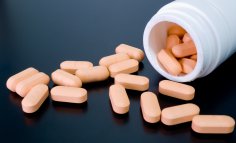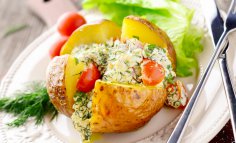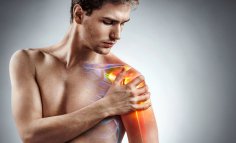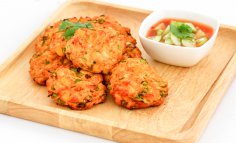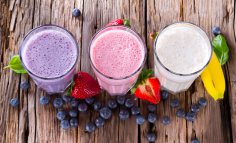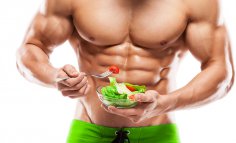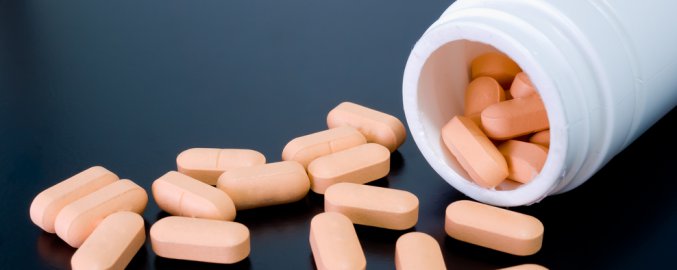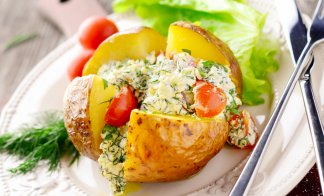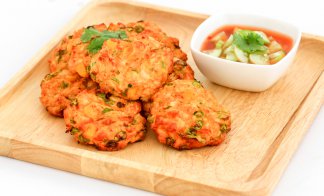Det finnes dels motstridende funn når det gjelder inntak av hvitløk og lipidprofil og reduksjon i faren for tromboser. Mye forskning må nok gjøres videre før man vet nok om hvor effektiv hvitløk er i så henseende, men noe forskning kan tyde på at det å tygge hvitløk er gunstig for disse parametrene. Sakser inn noen abstracts..
Comparison between swallowing and chewing of garlic on levels of serum lipids, cyclosporine, creatinine and lipid peroxidation in Renal Transplant Recipients.
Jabbari A, Argani H, Ghorbanihaghjo A, Mahdavi R.
Clinical pharmacy laboratory, Drug Applied Research Center, Tabriz University of Medical Sciences, University Ave, Tabriz, Iran.
abbasjabbari@yahoo.comHyperlipidemia and increased degree of oxidative stress are among the important risk factors for Atherosclerosis in renal transplant recipients (RTR). The Medical treatment of hyperlipidemia in RTR because of drugs side effects has been problematic, therefore alternative methods such as using of Garlic as an effective material in cholesterol lowering and inhibition of LDL Oxidation has been noted. For evaluation of garlic effect on RTR, 50 renal transplant patients with stable renal function were selected and divided into 2 groups. They took one clove of garlic (1 gr) by chewing or swallowing for two months, after one month wash-out period, they took garlic by the other route. Results indicated that although lipid profile, BUN, Cr, serum levels of cyclosporine and diastolic blood pressure did not change, Systolic blood pressure decreased from 138.2 to 132.8 mmHg (p=0.001) and Malondialdehyde (MDA) decreased from 2.4 to 1.7 nmol/ml (p=0.009) by swallowing route, Cholesterol decreased from 205.1 to 195.3 mg/dl (p=0.03), triglyceride decreased from 195.7 to 174.8 mg/dl (p=0.008), MDA decreased from 2.5 to 1.6 nmol/ml (p=0.001), systolic blood pressure decreased from 137.5 to 129.8 mmHg (p=0.001), diastolic blood pressure decreased from 84.6 to 77.6 mmHg (p=0.001) and Cr decreased from 1.51 to 1.44 mg/dl (p=0.03) by chewing route too. However HDL, LDL and cyclosporine serum levels had no significant differences by both of swallowing and chewing routes. We conclude that undamaged garlic (swallowed) had no lowering effect on lipid level of serum.
But Crushed garlic (chewed) reduces cholesterol, triglyceride, MDA and blood pressure. Additionally creatinine reduced without notable decrease in cyclosporine serum levels may be due to cyclosporine nephrotoxicity ameliorating effect of garlic.PMID: 15943877 [PubMed]
Health effects of garlic.Tattelman E.
Department of Family and Social Medicine, Albert Einstein College of Medicine of Yeshiva University, Bronx, New York 10467, USA.
etattelm@montefiore.orgGarlic has long been used medicinally, most recently for its cardiovascular, antineoplastic, and antimicrobial properties. Sulfur compounds, including allicin, appear to be the active components in the root bulb of the garlic plant. Studies show
significant but modest lipid-lowering effects and antiplatelet activity. Significant blood pressure reduction is not consistently noted. There is some evidence for antineoplastic activity and insufficient evidence for clinical antimicrobial activity. Side effects generally are mild and uncommon. Garlic appears to have no effect on drug metabolism, but patients taking anticoagulants should be cautious. It seems prudent to stop taking high dosages of garlic seven to 10 days before surgery because garlic can prolong bleeding time.
PMID: 16035690 [PubMed - in process]
Antiatherosclerotic effects of dietary supplementations of garlic and turmeric: Restoration of endothelial function in rats.Zahid Ashraf M, Hussain ME, Fahim M.
Department of Physiology, V. P. Chest Institute, University of Delhi, Delhi-110 007, India.
Protections of endothelial integrity by elimination of certain risk have proven to be effective in maintaining hemostasis and in slowing the progress of the cardiovascular disease. Indigenous drugs are the natural source of protection against these disorders, which can be used more effectively by the knowledge of their active ingredients as well as by their mechanism of action. Most prominent among these drugs are garlic, [Alium sativum L., Family: Liliaceae, Bulbs] and turmeric [Curcuma longa L., Family: Zingiberaceae, Rhizomes]; commonly used Indian traditional spices. In the present study, we examined the atheroscleroprotective potential of diet supplementation of garlic and turmeric by measuring serum lipid profile, changes in cardiovascular parameters i.e. arterial blood pressure, electrocardiogram and heart rate. We further tried to elucidate the mechanism of restoration of endothelial function and the role of endothelium-derived factors mainly, nitric oxide (NO) and cycloxygenase derived contracting factors. A notable restoration of arterial blood pressure was seen in animals on garlic and turmeric supplemented diet. Animals on supplemented diet showed a significantly enhanced vasorelaxant response to adenosine, acetylcholine, isoproterenol and contractile effect of 5-hyderoxytryptamine was significantly attenuated. Inhibition of these responses by L-NMMA was smaller in tissues from herbal treated animals. Incubation of tissues with L-arginine (10(-5) M) resulted in a significant reversal of L-NMMA induced inhibition of endothelium-mediated relaxation, which appeared to be pronounced in rings from animals supplemented with herbs as compared to hypercholesterolemic animals. Addition of indomethacin (10(-5) M) augmented the relaxation in all the groups of animals.
The present study demonstrated that garlic and turmeric are potent vasorelaxants as well as reduce the atherogenic properties of cholesterol. Whether combination of these vasodilators in cardiovascular disorders with increased peripheral vascular resistance remains to be determined.
PMID: 15964306 [PubMed - indexed for MEDLINE]
Effects of garlic oil and diallyl trisulfide on glycemic control in diabetic rats.Liu CT, Hse H, Lii CK, Chen PS, Sheen LY.
Department of Nutrition, Chung Shan Medical University, No. 110, Sec. 1, Chien Kuo N. Road, Taichung 402, Taiwan, Republic of China.
ctl@csmu.edu.twWe investigated the effects of garlic oil and diallyl trisulfide on glycemic control in rats with streptozotocin-induced diabetes. Diabetic rats received by gavage garlic oil (100 mg/kg body weight), diallyl trisulfide (40 mg/kg body weight), or corn oil every other day for 3 weeks. Control rats received corn oil only. Both garlic compounds significantly raised the basal insulin concentration. The insulin resistance index as assessed by homeostasis model assessment and the first-order rate constant for glucose disappearance were significantly improved by both garlic compounds (P<0.05). Oral glucose tolerance was also improved by both garlic compounds and was accompanied by a significantly increased rate of insulin secretion (P<0.05). Glycogen formation (but not that of lactate or carbon dioxide) from glucose by the soleus muscle in the presence of 10 or 100 microU/ml of insulin was significantly better after treatment with both garlic compounds. Both garlic oil and diallyl trisulfide improve glycemic control in diabetic rats through increased insulin secretion and increased insulin sensitivity.
Growth inhibitory effect of alk(en)yl thiosulfates derived from onion and garlic in human immortalized and tumor cell lines.Chang HS, Yamato O, Yamasaki M, Ko M, Maede Y.
Laboratory of Internal Medicine, Department of Veterinary Clinical Sciences, Graduate School of Veterinary Medicine, Hokkaido University, Sapporo 060-0818, Japan.
Two alk(en)yl thiosulfates, sodium n-propyl thiosulfate (NPTS) and sodium 2-propenyl thiosulfate (2PTS), are natural constituents of onion and garlic, respectively, which were identified originally as causative agents of onion- and garlic-induced hemolytic anemia in dogs. As a continuation of our studies on the beneficial functions of NPTS and 2PTS, in the present study, we investigated the antitumor effects of these compounds. They were shown to inhibit the in vitro proliferation of three human tumorigenic cell lines, WiDr, 293 and HL-60, in a dose-dependent manner. Overall, NPTS seemed to have weak activity for inhibiting cell growth compared with 2PTS, though not in WiDr cells, which were sensitive to both compounds. NPTS and 2PTS caused oxidative damage to HL-60 cells and induced apoptosis. The extent of apoptosis was approximately proportional to that of the oxidative damage and also to that of the cytotoxicity caused by these compounds. These results suggest that the alk(en)yl thiosulfates have an antitumor effect through the induction of apoptosis initiated by oxidative stress.
PMID: 15890236 [PubMed - indexed for MEDLINE]
I
sum-ser altså ut til å
kunne ha effekt på lipidprofil, hemme vekst av tumorer og gi bedre insulinsensitivitet... I påvente av det endelige vitenskaplige bevis ignorer jeg sosiale ulemper og tygger hvitløk med entusiasme.

